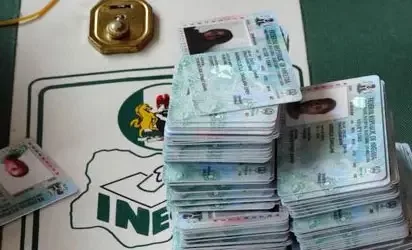The European Union (EU) has launched a thirty nine million Euro (€39m) to support democratic governance in Nigeria.
The programme, tagged EU Support to Democratic Governance in Nigeria Phase II, will be implemented until 2027, and is aimed at improving the quality of electoral administration in Nigeria, among others.
EU Ambassador to Nigeria, Samuela Isopi, stated this in Abuja on Monday, at the closure of EU Support to Democratic Governance in Nigeria (EU-SDGN) Phase I and launch of EU-SDGN phase II.
She also disclosed that the European Union has provided technical support to key electoral institutions and stakeholders since Nigeria’s return to democratic rule in
1999, with over a hundred and fifty million euros (150 million euros) committed so far.
Isopi said, “Phase 1 of the EU-SDGN programme contributed to the reform of the electoral process by building capacities, strengthening institutions,
strengthening the role and participation of civil society, contributing to the
reform of the legal framework.
“Building on the success of the first phase, the Identification and Formulation of phase II of the programme was done in consultation with the Nigerian Government and key stakeholders such as the Independent National Electoral Commission (INEC) and civil society organisations.
“The overall objective of the programme is to foster a functioning pluralistic, inclusive, participatory and representative democracy in Nigeria.”
She noted that the European Union will continue to provide targeted support by building on the successes of the past electoral cycles and taking forward the very significant lessons learned within the period.
“As the largest democracy in Africa, elections in Nigeria matter. They matter to Nigeria and Nigerians, they also matter for Africa as their outcome will be watched and felt well beyond its borders. Nigeria has the responsibility to lead and inspire other democracies on the continent.
“Six months ahead of the 2023 General Election, Nigeria is at a pivotal moment in the process. Who wins the elections is for the Nigerian people to decide.”
The EU Ambassodor further said it will work together hand in hand to ensure that the 2023 elections will be peaceful, free, fair and inclusive for the benefit of Nigeria and its people.
Also speaking, the Chairman, Independent National Electoral Commission (INEC), Professor Mahmood Yakubu said it is commendable that the EU-SDGN II is designed to build on the successes achieved under Phase I.
He reassured that the Commission will work together with the consortium of partners to implement the support to the INEC component of the EU-SDGN II.
“We will also continue to create the enabling environment to facilitate the work of the partners for the successful implementation of the programme. The choice of the partners signifies a vote of confidence in their capacity to undertake actions and implement activities that are critical to promoting the institutionalisation of democratic norms in our country. We will work with the implementing partners for free, fair, credible and inclusive elections.
“I wish to reiterate here that the core costs of our electoral activities, including the acquisition of sensitive and non-sensitive materials for all elections, remain the sovereign responsibility of Federal Government of Nigeria.
“Nevertheless, the Commission appreciates the support of international development partners to enhance training and capacity building of officials; stakeholder engagement for peaceful election; production and dissemination of messages for voter education and sensitisation; enhancing the active and meaningful participation of all segments of society in the electoral process with particular reference to women, youth, Persons with Disability (PWD) and Internally Displaced Persons (IDPs); and, finally, election conflict mitigation, management and resolution,” he added.





